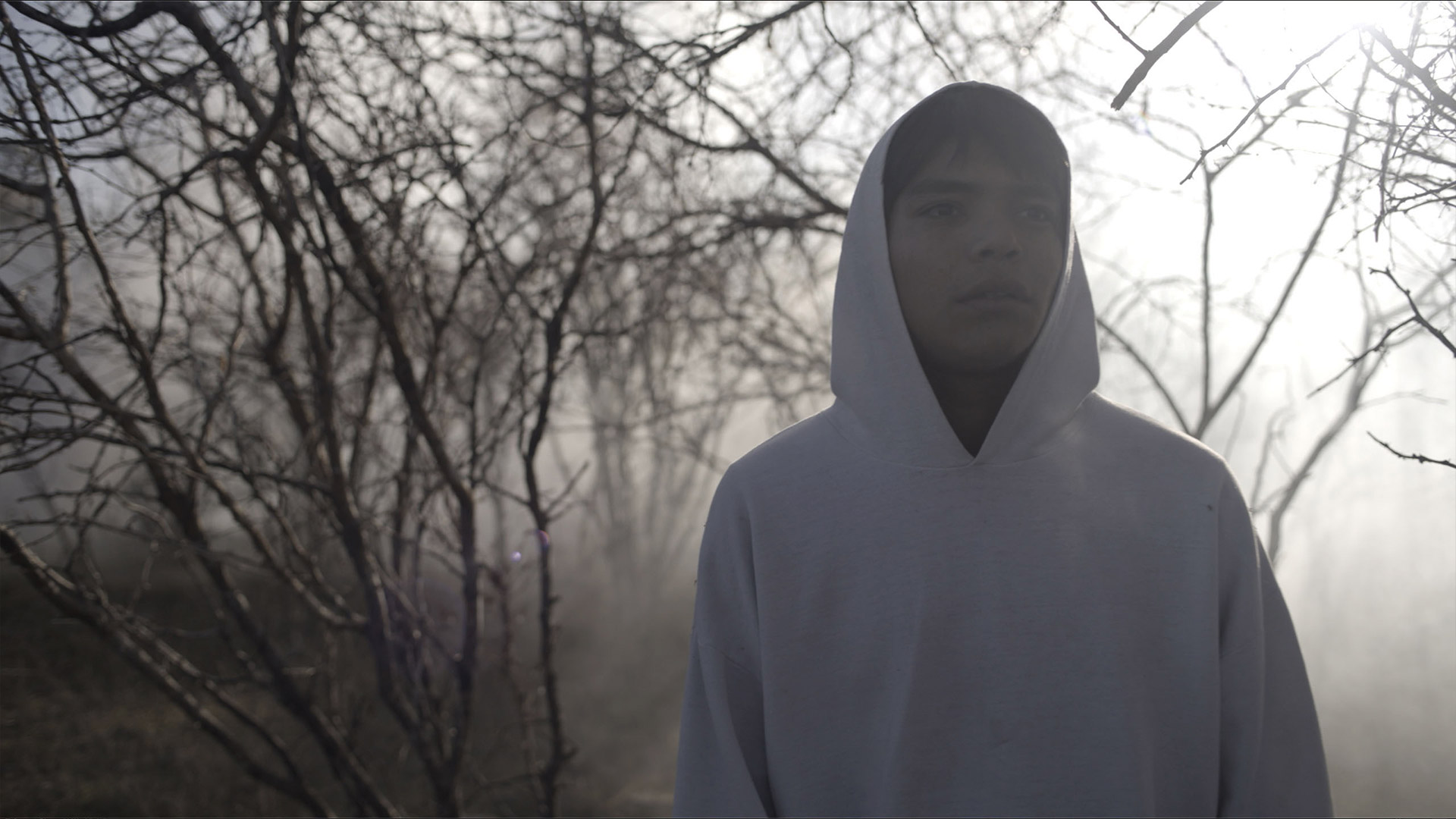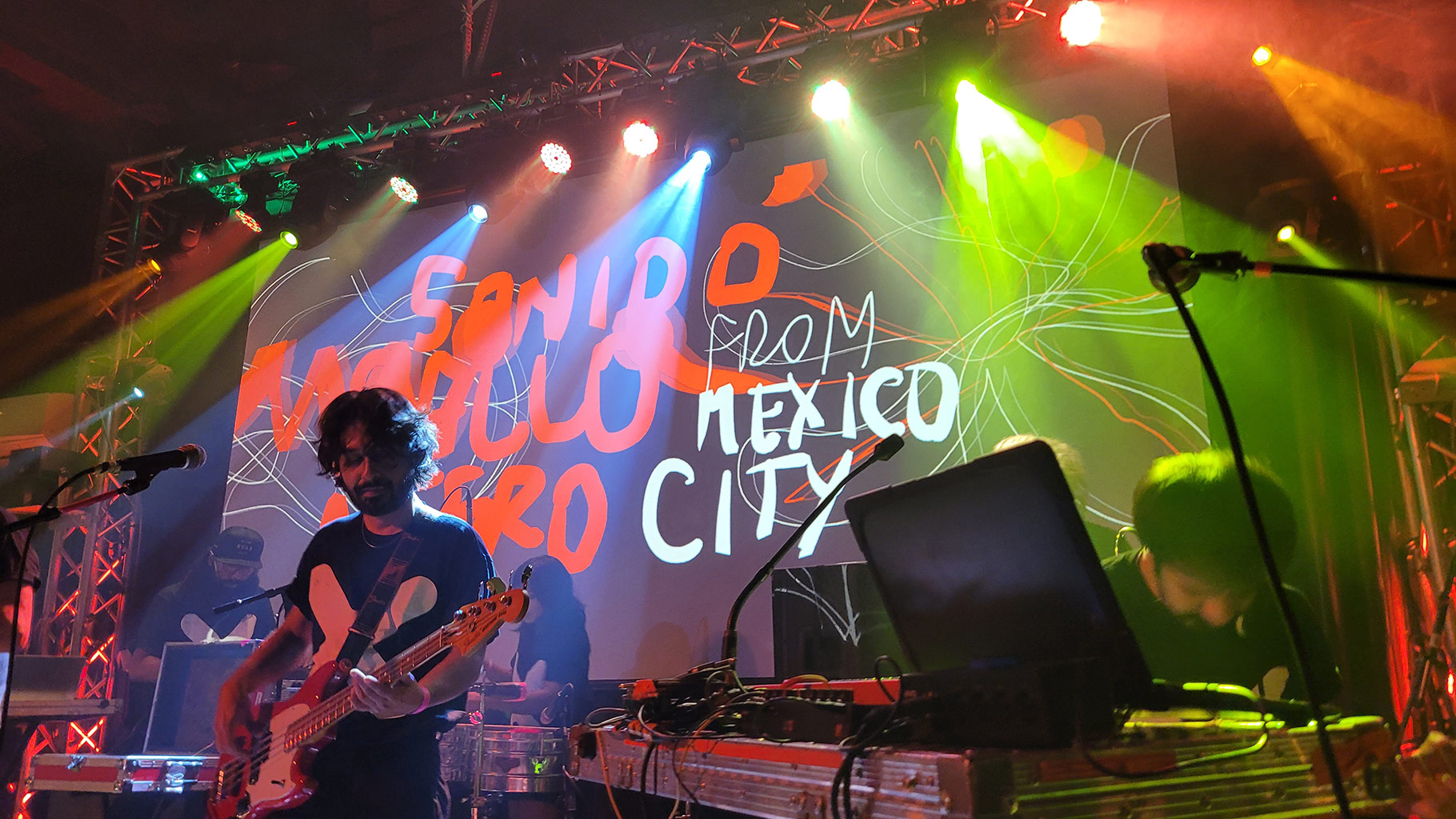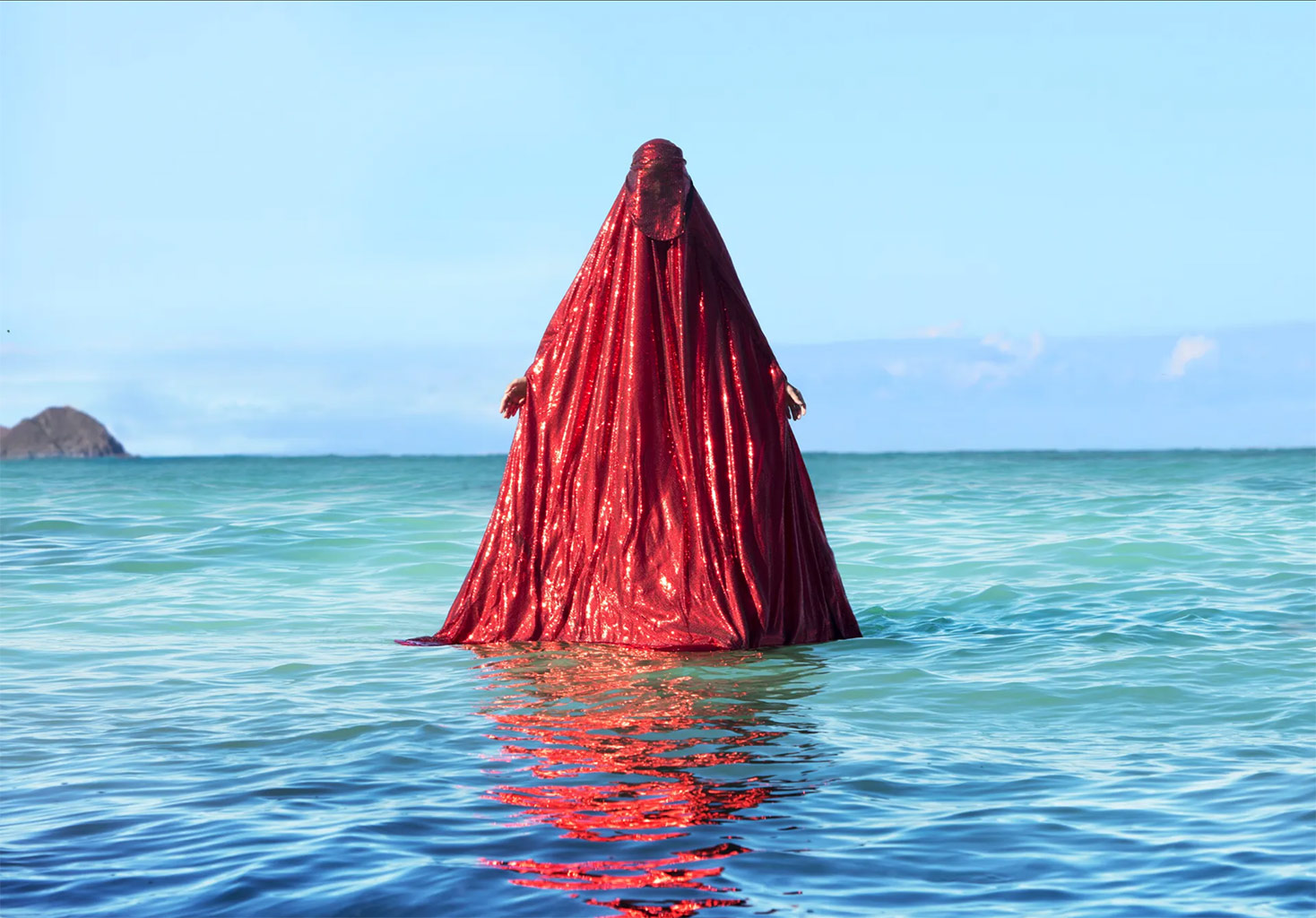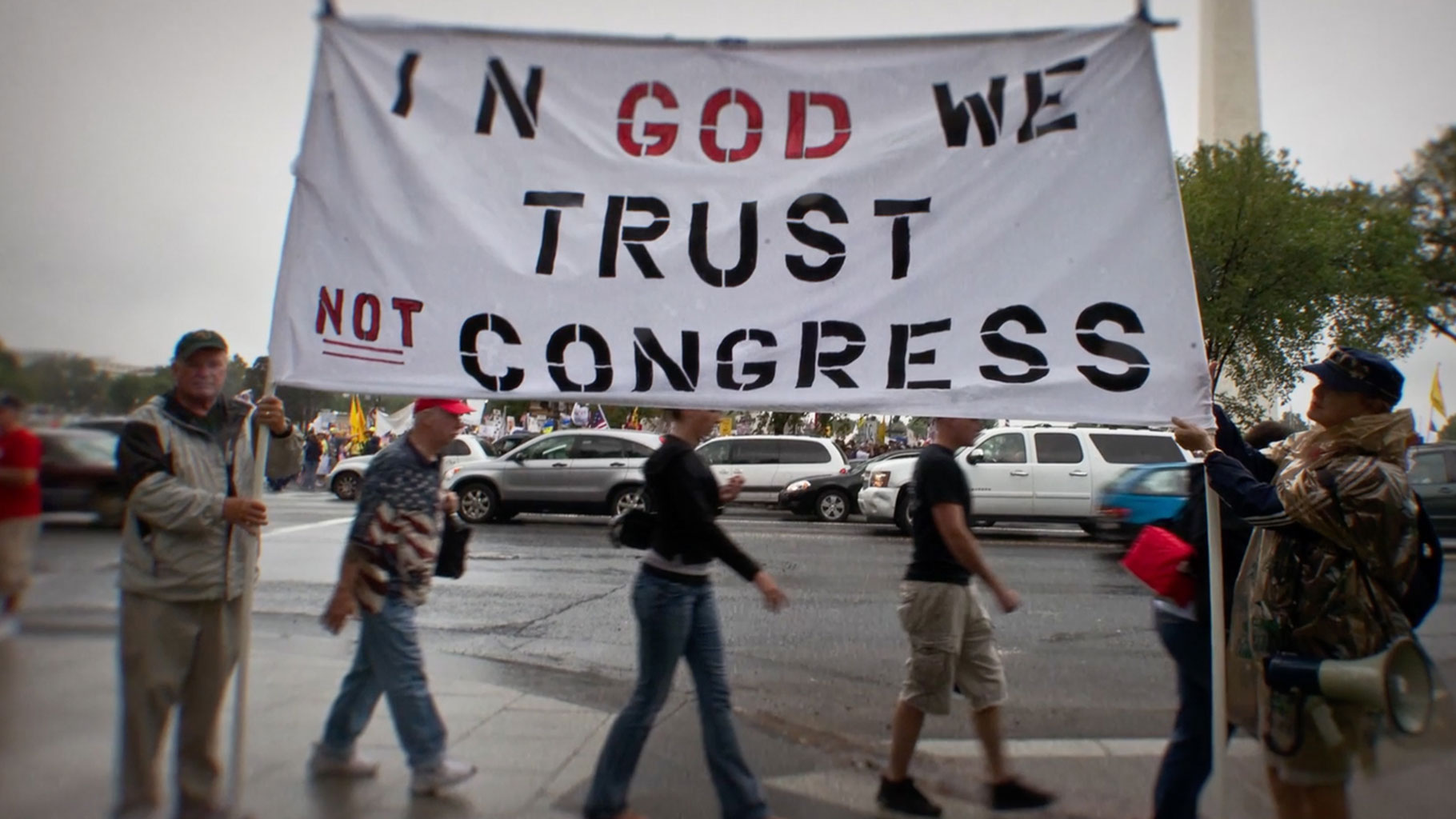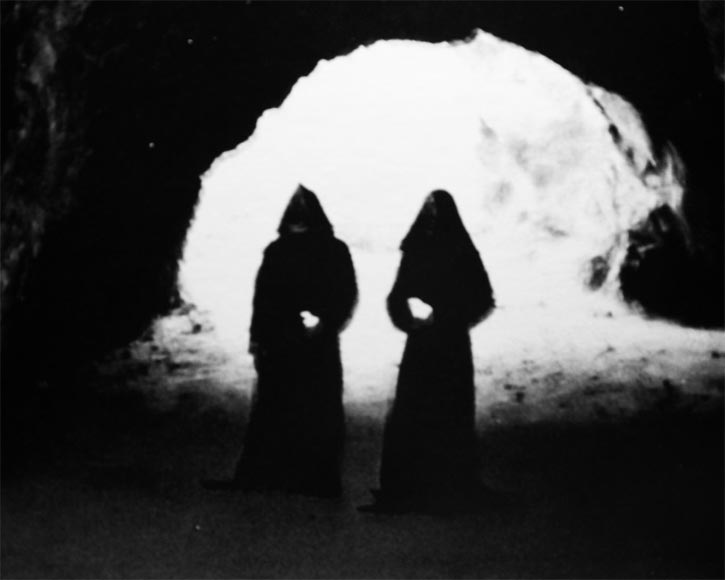
Sunn O))) recently invited a few individuals to listen to their seventh album, Monoliths & Dimensions, for a full day of listening sessions. The studio location for the listening session was small, but backed by a studio owner who is a huge Sunn O))) fan, two seven foot speakers, and a bass cabinet in front of a sound board, it was well-equipped to do Sunn O))) justice.
Once we were ready, the disc began spinning, and suddenly, the sound board and lights began glowing red. The beginning of the disc was very much reminiscent of Sunn O)))’s earlier recordings, but the presence of the album’s primary vocalist, Attila Csihar, adds a completely new sound to the band. His vocals compliment each experiment in sound that Greg Anderson and Stephen O’Malley attempt.
A mix of instruments played in both traditional and non-traditional ways for Monoliths & Dimensions creates a sound that is difficult for others to duplicate. Voices are added as instruments, and the feeling the album gives off is that of an Alfred Hitchcock movie with a modern day crash and burn element. Each next note and beat of the album is unpredictable, but exciting. The last track on the album, “Alice,” may be the most suspenseful piece of music I’ve ever heard, proving Sunn O)))’s ability to successfully represent feelings with sound. It’s enlightenment — meditative and suspenseful — wrapped up into one album.
The day after the listening session, I had the chance to photograph and talk to Greg Anderson and Stephen O’Malley of Sunn O))).
Listen to “Aghartha”
You have a lot of new instruments and people on the new album. How has that evolved over the years?
Stephen O’Malley: We decided to write a new record, and one of the things we wanted to explore was to try working with some acoustic ensemble instruments and players this time around. When we started tracking, it started like we start all our records — with guitar and bass. We worked with some riffs and put down a foundation of things. A big difference with this record and some of our prior records is that we elaborated on those basic ideas further than we have before.
Greg Anderson: Time was a big difference with this album. All of our other records were done in two weeks to a month. This album took a year and a half to almost two years to complete. As we were writing and recording it demanded that we take our time with this album.
You have a lot of traditional instruments and musicians on this album. How did you fit them in to the realm of Sunn O)))?
O’Malley: It’s a challenge actually, especially [when working] with a lot of classical musicians. Classical musicians are highly educated in the field of music and play according to sheet music. We were lucky to find people who were able to think outside the box and experiment with their instruments. Sometimes, it is a little intimidating because some of these musicians may not feel comfortable improvising. We worked with Eyvind Kang who has been doing a lot of experimental composition in the Seattle area, and he had a lot of contacts. Some of these people he brought to the table to work with this record.
Anderson: No ads on Craigslist. “Metal band needs strings.”
O’Malley: Some of the people, like Eyvind Kang and Steve Moore — who is also key in this album — have contact with such [people] as Stuart Dempster and Julian Priester… those two guys are masters in their instruments, with long careers, and they still came to work with us on this record.
Anderson: It’s really amazing, the community of musicians in Seattle… I wasn’t aware of [it] until [undergoing] the process of this record. [There’s] so many heavy dudes living in the same place. Being able to work with them was an honor.
What do you think it is about Seattle that brings musicians to that area?
O’Malley: I was just thinking about that. The geography attracts different types of artists. Seattle has a really great music scene, but the visual art scene isn’t really going on. New York has a great contemporary art scene, but not the creative foundation like Seattle has for music. I don’t know if that is because of the geography; I don’t think that is the point.
Anderson: Seattle’s music scene is really amazing going back to Hendrix and all that happened in the ’90s. Those are the big things, but in between those and now, there are still amazing bands, musicians, and artists in Seattle. It’s really cool.
O’Malley: A lot of experimental music. Whether it be a metal band like Lesbian [that are] trying to go new places with metal, or Sun City Girls, or classical players… all are in Seattle. Timb Harris, who plays violin on our new record, is in an experimental classical group that oved to Seattle form Arizona. It’s pretty cool to find that… it is like discovering a new leaf in your home town.
Is there anything specific in Seattle that inspires you?
O’Malley: For me it’s more about coming from there. When I visit there now, it’s more about seeing family and old friends who still live there. They are what inspire me to go back to Seattle. Earth feeling, I guess. The nature around that area is really beautiful, and it’s calming to encounter that again. Going into the woods for an afternoon you can get charged.
Anderson: Of course the music from Seattle is a huge influence. The Melvins, Earth, The Accused… they pretty much got me into hardcore and metal.
What inspires you to be so different with your music?
O’Malley: I don’t view us as so different or out there. For me, as a guitar player, I’m just trying to explore a new area. I wouldn’t necessarily say that what we are doing is the most original, brand new thing in music. There are a lot of reference points and traditional sounds in our music. We try to continue the tradition of music that we are influenced by, such as [that of bands like] Earth and the Melvins. I get really excited to play different ways and discover new things about the instrument, sounds, and tones, [to] sort of break the repetitiveness of playing the instrument and calcify a place that you can get to. I wouldn’t call it progression, but more experimentation.
Anderson: I don’t see what we are doing as groundbreaking or reinventing the wheel. To me, it is interesting to play heavy music in a different way. With each record we try to make it a little different than the one before it. It’s a challenge to find new ways to play heavy music.
With those new ways, do you manipulate your instruments in any way?
O’Malley: Last year, for the first time in a bunch of years, we played some shows just as a duo and we will be doing that again this spring. I don’t recall the level of feedback and resonance control that we experienced with doing that. I thought to myself, “Wow we’ve come a really long way with this particular aspect of what we are doing.”
Anderson: We are learning how to work with the amps and our instruments. When we first started, there was a lot of noise from just not being able to control the feedback or learning how to dial in the amps like we can do now. I noticed the same thing playing as a duo again. A duo is how we started out, and now, we are doing that again after almost ten years. Where we have come from, then to now, is interesting. It made me feel good that I had not wasted the last ten years of my life. I’ve actually learned something about playing the instrument. I don’t consider myself to be a technically great player, but I have learned a lot about how to manipulate the instrument and the amps.
O’Malley: We have become a lot more musical, too. We have been in that core element of the guitars and now looking through fresh ears and strained ears from working on this album, just hearing two guitars in the live setting has become more melodic in different ways that I had not remembered. Learning to hear differently is part of the progression. Your hearing evolves and the perception [becomes] more musical. I think that is the relevance of doing duo shows after this record. We are still going to do more elaborate things, but we will do some duo shows this spring. All this music is inside this rich harmonic area of the electric guitars, overdrive, and feedback. I feels good to hear that differently over our tem years.
Is there a difference now between playing live and recorded?
Anderson: Stuff that we work on live becomes the foundation for what we record. We have performed several shows with Attila Csihar on vocals and Oren Arnbarchi on guitar which have created some great live shows. So, we thought we would try to capture that on tape. Our live sound person is also the person who recorded this album, and he is really familiar with what we do, how we sound, and how to get a really good sound out of the amp. [When playing] live, we want do what is on the record… maybe we will work off some of the riffs as a foundation… but it is rarely like what we recorded.
O’Malley: One of the things about Sunn O))) is that it does not have to be strict about the repetition of an exact piece of work. The body of the music is continually evolving on its own. The live stuff inspires the recordings to be as aesthetic, and that can be quite a challenge [because of] the physics of what you are listening through. With this record, I think we came close to some of the emotive stuff that happens live. For me, playing live, there is that really peak part of a performance that makes it what it is all about.
Do you record your live shows for reference during recording?
Anderson: We actually released a live record on vinyl only last year. It was a live show that we performed at a cathedral in Bergen, Norway. I think that was a good representation of our live show. It has some ideas and riffs from other records, but the live show becomes its own beast.
O’Malley: We don’t record the live shows to reference [them], but I think we do it with just our memory. We trust our state of mind and memory of how things have dawned.
The new album has a soundtrack quality of emotions. Are there specific movies or visuals that inspire your music?
O’Malley: I like a lot of films, but the one director that I would mention is (Andrei) Tarkovsky, a Russian director, mainly because of his attempt to stretch time and take really long takes. He has patience to focus on details of what seem to be everyday situations. One of his most [popular] films is Stalker. It supposedly takes place in this futuristic space, but the reality of what you are seeing is these guys walking around a swamp in the Ukraine. The whole mastery of timing and pacing is so heavy, and it makes for a beautiful film. The focus and framing in particular are elements that give his work unworldliness to a normal situation. I find this to be a lasting inspiration.
Anderson: Nothing worth mentioning. My taste in films is a little more of the bonehead variety. You know, your Jim Carrey comedy. I appreciate a lot of different things, but I would not view [film] as an influence.
Is there a vision or an emotion that you would like your audience to feel when listening to your albums or at a live show?
O’Malley: Pleasure.
Anderson: I don’t have any goal or intention when playing, towards wanting the audience to feel a certain way. I actually try not to think about it. Sunn O))) is a little bit selfish for me in some way. Stephen and I started as friends with similar interest in wanting to play music together. So that’s what Sunn O))) still is. I’m not really concerned with what the audience’s reaction is. I’m completely grateful that people connect with it, but I’m not bummed out when people don’t like it.
O’Malley: I’m freaked out by the audience, to be completely honest. I try to not get too engaged [with them], but engaged with the music. I try to be respectful of the audience. I’m really fortunate that the audience is engaged in the music while I’m trying to disengage. Being on a stage sets up all these expectations of performance which isn’t what our music is about. But the format in which we present it requires a stage.
Anderson: I feel uncomfortable with this obligation to entertain. I’ve played in bands my entire life where it’s guitar, bass, drum, and vocals. You are up there, there is an audience, and you get into this entertainment mode.
O’Malley: Getting a mosh pit going is your mark of success.
Anderson: With Sunn O))), I don’t feel comfortable with that. I don’t feel as if I am an entertainer in this band… so I try to be in my own world.
O’Malley: The quality that are more important with concerts is much more deep than just entertainment. I think we just want our audience to have a chance to get out of their heads for an hour in a serious way or a meditative way. I think we are looking for a higher result than just pure entertainment, although that is enjoyable as well.
Listen to “Alice”
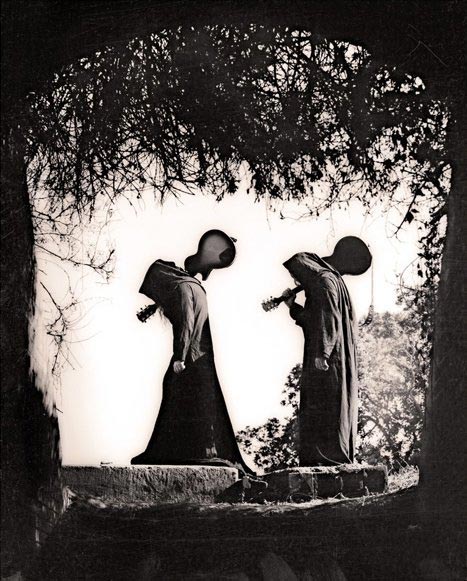 You spoke of playing a few duo shows this spring. Do you ever plan to take a few people from the new album on a tour?
You spoke of playing a few duo shows this spring. Do you ever plan to take a few people from the new album on a tour?
Anderson: Yeah, we are definitely going to try to do something with an expanded line up. It will be one of those things that I think will be more suited for special events. That will keep it fresh and unique for us, rather than going on a month long bus tour with a string section.
O’Malley: We are getting some support from people who really love the music. There are some promoters in Europe especially who have expressed interest in an event like this. So, we are in the beginning stages of this.
Anderson: We are going to go out with some of the performers from the new record, like Attila on vocals and probably Steve Moore on keyboards and horns. We are hoping to do that sometime in the summer.
With Southern Lord Records, you have a vast variety of artists.
Anderson: You mean from Dave Grohl to Dixie Dave? That says a lot actually.
Do you foresee working with any of those people, and is there anyone that you would like to work with?
Anderson: Dixie Dave with Sunn O)))? Fuck Yeah, that would be awesome. Well, we made a record with Boris. Earth is a band that we play a lot of shows with, and Dylan Carlson from Earth is on the new Sunn O))) record. Steve Moore who also plays with Earth is on the new record.
O’Malley: Joe Preston form Thrones is on the new record and has played on a few Sunn O))) records.
Is there anyone you have not worked with that you wish to work with?
O’Malley: I would like to work with Britney Spears.
Anderson: DEVO, Mark Mothersbaugh would be killer actually.
O’Malley: Meredith Monk.
Anderson: The vocalist that we both like is Scott Walker. It would be really great to do something with him.
O’Malley: One of the things that Greg and I always talk about is — let’s keep the expectations realistic. Keep it real. Sometimes planning or wishing to work with someone like Scott Walker or someone else in that league or another generation is ambitious, but at the same time it would be difficult to keep Sunn O))) in the space that it already exists. So many amazing people are already working with Sunn O))) that we are in a fortunate space as far as collaborations go. But who knows what the future holds. Our collaborations come from the people we know and are in the proximity of where we are when we are ready to make a record. That’s how it was with Oren and Attila. These are people that are already in the picture. So trying to make a wish list goes a little outside of our realm. We meet so many people when we tour and make music. Also, you can never tell what a person’s personality is going to be like, especially with musicians. When first contacting Oren, I had no idea that we would become such good friends and work with each other for so long. I didn’t think it wouldn’t be that way, but at the same time, it’s a good surprise with a good result.
Any instruments that you are interested in working with?
O’Malley: One thing that I am interested in is with a choir. Russian Orthodox monk choirs have a real bass tone. Especially supporting Attila because he is already there with the bass tone. These Orthodox choirs have a mathematics to them. The number of people in the choir is about 20, and 12 are in the bass range, and about 3 guys can go an octave below the bass. Then a couple of baritones. It creates a chant that is fucking amazing. Then you have these people who are not in the typical notation space. They are moving around in notes that are not really on the staff so there is a lot of tonal flexibility in their compositions. There is this one Easter prayer that I have been listening to where the main bass frequency monk.
Anderson: Bass Frequency Monk — there’s the next album title.
O’Malley: There is some celebration around Easter which is the largest Russian religious holiday. It starts out with the lead Monk chanting all of the names of the high priest that are there as a greeting. He starts out really low and moves into another level over a period of a couple of minutes. It as this arc quality that sounds like the bending of feedback. It’s not like going from C to C sharp up the scale; it’s going between the scale word for word, and it is really patient. It’s really cool and beautiful. That’s a little fantasy to work with. There is actually a church in Paris where one of these choirs that does the sort of things works, so I am going to check it out.
How does living in Paris influence your music?
O’Malley: I would say the main way is that it is more relaxed than living in New York. I don’t feel so stressed about scraping by and struggling to earn money. I am able to survive easier there. I like art, and there are a lot of museums there to influence me.
How about living in LA versus living in Seattle?
Anderson: It’s really weird. I moved to LA about twelve years ago. I have noticed that my mood drastically improved after moving to Los Angeles. I think a lot of it had to do with sunlight. It’s not like I was really depressed while living in Seattle, but I have noticed I was a little more negative. Now, living in Los Angeles, I’m able to go outside a lot more and just being in the sunlight has made me a happier person. I think California in general is just a beautiful state. I really enjoy being able to go hiking and camping. Being able to enjoy the surroundings is just amazing and beautiful. I’m not sure if I can make a correlation between where I live and the music that Sunn O))) makes, but I definitely could not do what I am doing in Seattle now. There is something about Los Angeles that has this energy that you are allowed to tap into if you want to that I was not able to find in Seattle.
O’Malley: That’s how I feel about living in New York, which is where I lived before moving to France. It taught me to have a drive and to push myself further than I would have before. One, out of survival, [and] two, because the energy of this city is so invigorating that it shaped my personality.
You reference art a lot. Have you ever experimented in other ways other than music?
O’Malley: I do a lot of graphic design stuff and was really into drawing. I don’t do too much of that anymore. I am super into graphic design. In the past year, I have had a lower production of that mainly because we have been so focused on music. It’s a great way to try to articulate abstract ideas visually. Where you live shapes your personality, but it doesn’t go straight into our music.
Anderson: Smog is an inspiration.
You have referenced nature a few times. Does nature help you write music?
Anderson: I think it is inspirational for sure. Mountains and trees I think are massive, and it helps me to make my music that way.
O’Malley: I got really into the Alps from living in France. My girlfriend’s family is from an area in the Alps, and it is fucking beautiful, fucking awesome, and it helps you be alive to encounter that stuff. That is definitely fuel to make music.
What’s next for Sunn O)))?
Anderson: We are going to play some shows as a duo. A few shows in Japan for a couple of weeks. We are doing some shows in Europe in May. The first band that Stephen and I were in together, Thorr’s Hammer, will be doing a reunion in the UK in July. The Accused are playing that as well. That will be a huge show because of the inspiration from The Accused, which was a big part of my life, especially when I was younger. So getting back together to play as our first band, Thorr’s Hammer, is pretty special. We are going to represent Seattle.
O’Malley: The other band on the bill is Corrupted so it’s kind of cool to have old and new.
Last words?
Anderson: Viva la Ballard.
O’Malley: Viva la Shoreline.


